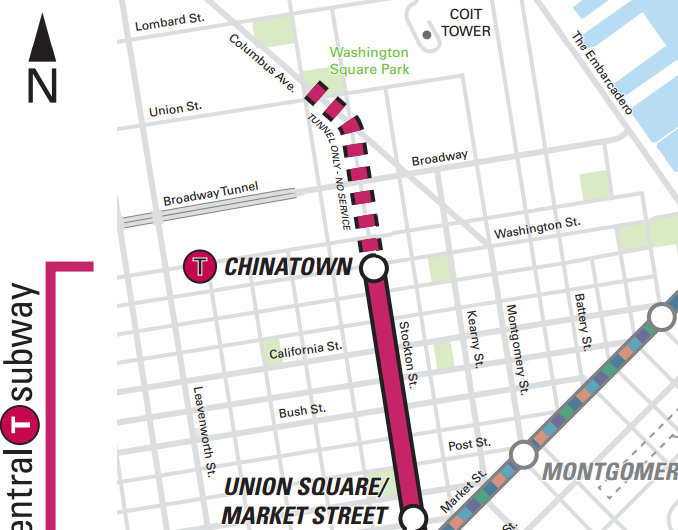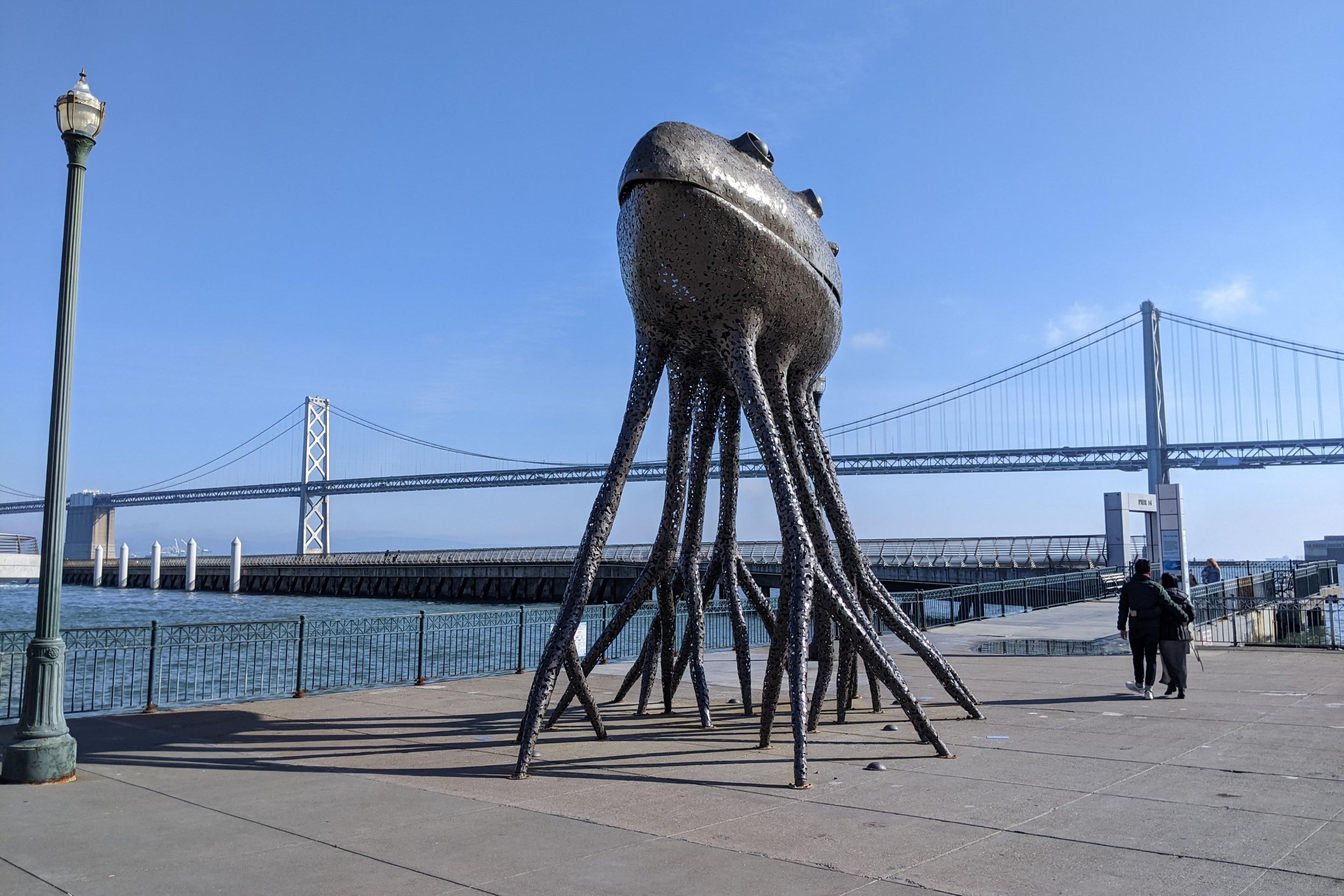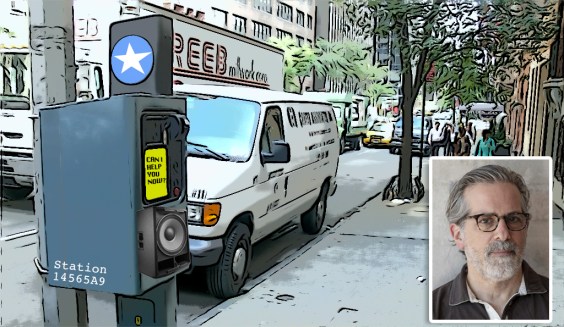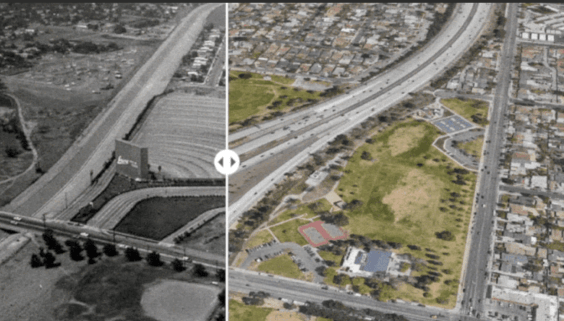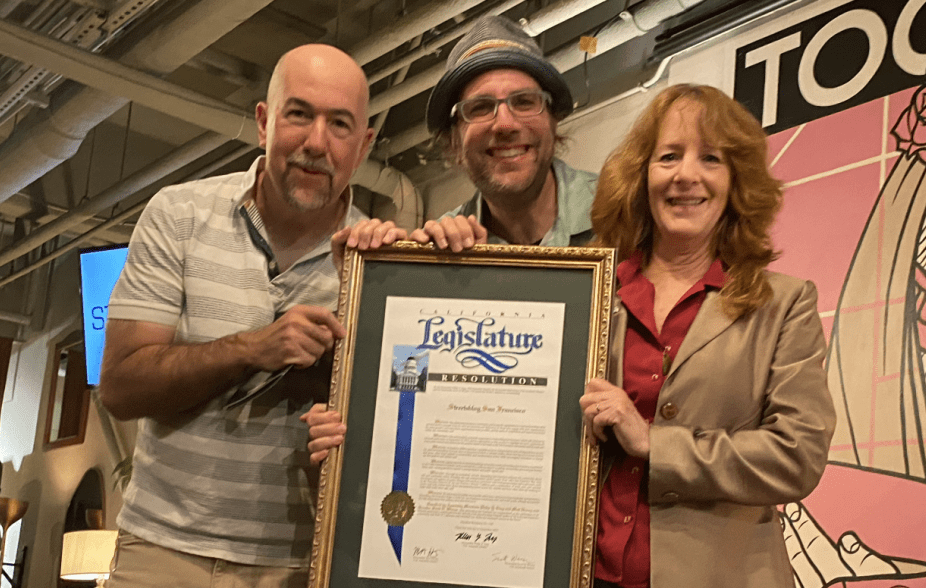Central Subway planners got the green light from the SF Municipal Transportation Agency Board of Directors today to pursue a new plan that could cut down on the expected construction disruption in North Beach while also keeping the path clear for an eventual extension of the line to the neighborhood.
Residents and merchants in North Beach, who were fiercely opposed to the SFMTA's original plan to extract the subway tunnel boring machine on Columbus Avenue at Union Street -- which would have closed two of Columbus's four traffic lanes for ten months -- rallied behind the idea of bringing the machine out at the nearby abandoned Pagoda Palace Theater. Of the options on the table, planners say that one would most effectively minimize disruption while keeping the tunnel clear if the agency eventually decides to extend the T-Third subway line to North Beach and Fisherman's Wharf.
The lack of solid plans to extend the Central Subway beyond Chinatown, despite taking the drill out in North Beach, has been one of the major criticisms of the project. According to SF Chronicle columnists Phillip Matier and Andrew Ross, SFMTA Director of Transportation Ed Reiskin believes it's possible to turn the Pagoda site into an eventual subway station, though the agency has yet to even study the next phase for the subway.
But Reiskin also emphasized that the SFMTA Board's vote to endorse the Pagoda plan would have little bearing on a potential North Beach station. "I think this was a little bit misconstrued in some of the media reports," he told the board. Discussions and planning for a North Beach extension, he said, "would be subject to a separate process."
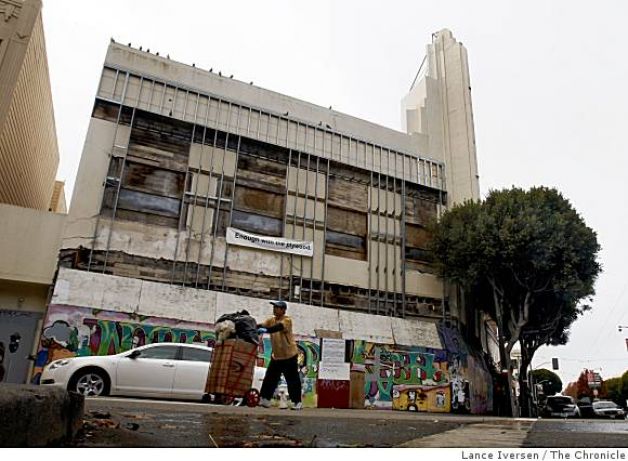
Residents still worry that the agency might fall back on the original TBM removal plan if it can't make the Pagoda option work, as it hinges upon the SFMTA coughing up an extra $8 million and buying it from the building owner, who already has re-development plans approved by the Planning Commission. The agency's next-best plan is to leave the TBM underneath Columbus Avenue, which would make a North Beach extension more difficult and still add $3 million to the current project's budget. Planners are betting that neither option will require a substantial amount of extra environmental review, and they must fully commit to a plan by February to avoid delays.
"This seems like an unrealistic timeframe," said Mike Sonn, chair of the Telegraph Hill Dwellers Transportation and Parking Committee. "A North Beach station would appease many of the main complaints, but there has been no planning and there certainly isn't any money, so that option must be viewed in that context. Personally, whatever option the MTA chooses, I would like to see it not preclude an expedited North Beach station (in less than 10 years) and I feel both of the Columbus Avenue options work against that outcome."
Stephen Taber, chair of SPUR's Central Subway Task Force, said the organization "vigorously supports" the project as a whole, but that "our major criticism against this project is that it doesn't go far enough. Our principal aim is to make sure that whatever happens does not preclude the extension."
With or without the extension, the many criticisms leveled against the Central Subway will no doubt continue to divide transit advocates. "Planning to extend the Central Subway could allay those critics who say the project doesn't go far enough," said Tom Radulovich, executive director of Livable City. "But it won't allay those critical of the hundreds of millions of dollars Muni plans to spend on the Central Subway while the existing system has such compelling capital needs."
